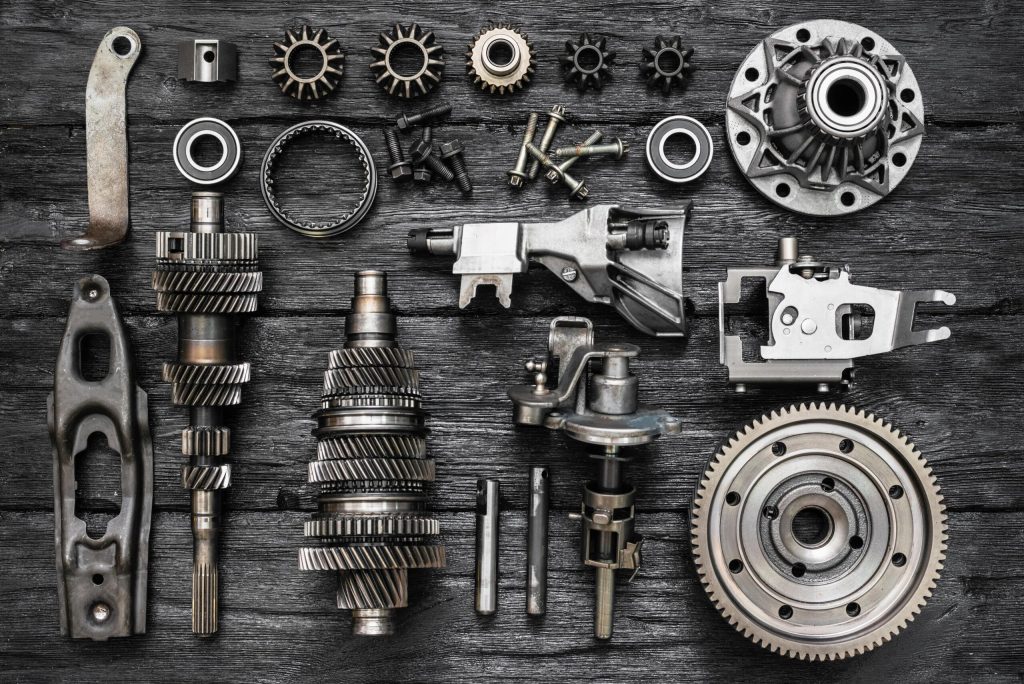Exhaust Tuning: Unlock the Sound and Performance You Deserve

Introduction
The exhaust system is far more than a series of pipes—it’s the voice of your car and a key to unlocking hidden performance. Whether you’re chasing a deep, aggressive tone or looking to squeeze every bit of power from your engine, Exhaust tuning is where precision meets passion. At Rvng RaceWorks, we understand that a properly tuned exhaust transforms how your car sounds, feels, and performs on every throttle input. Let’s explore how the science and art of exhaust tuning can give your car the power and sound it deserves.
What Is Exhaust Tuning?
Exhaust tuning is the process of optimizing gas flow, pipe dimensions, and acoustic properties to achieve the perfect combination of performance and sound. Every bend, length, and diameter in an exhaust system influences how efficiently gases exit the engine. When done right, exhaust tuning enhances throttle response, horsepower, and the car’s overall driving dynamics.
The Relationship Between Sound and Flow
The Sound Profile
Your exhaust note comes from the way exhaust gases pulse and resonate as they travel through the system. A well-tuned exhaust delivers a powerful, distinctive tone—aggressive when you’re pushing hard, but refined when cruising.
At Rvng RaceWorks, we use acoustic tuning techniques such as resonator design and muffler shaping to achieve a balanced tone that complements each car’s engine characteristics.
Flow and Performance
Performance tuning focuses on optimizing flow velocity while minimizing back pressure. A restrictive exhaust limits how quickly gases escape, reducing power. A tuned high-flow exhaust eliminates unnecessary resistance, ensuring maximum efficiency without losing low-end torque.
Key Components That Affect Exhaust Tuning
1. Headers
Performance headers replace restrictive factory manifolds, allowing each cylinder’s gases to flow more freely. Tuned-length headers can create smoother exhaust scavenging, improving horsepower and torque across the RPM range.
2. Pipe Diameter and Length
Pipe size is one of the most critical aspects of exhaust tuning. Too narrow, and you create excessive back pressure; too wide, and you lose exhaust gas velocity. The right balance keeps flow velocity high while allowing gases to exit efficiently.
3. Mufflers and Resonators
Mufflers and resonators shape the final sound and manage frequencies. In a tuned exhaust, they are engineered not just to reduce noise, but to enhance tone and control drone.
4. Catalytic Converters
High-flow catalytic converters maintain emissions compliance without drastically reducing flow. They are an essential component for achieving legal performance in a tuned exhaust system.
The Role of Valved Exhaust Systems
Modern valved exhaust systems offer tunable sound on demand. By electronically controlling valves within the muffler, drivers can switch between quiet, street-friendly modes and aggressive, track-ready sound profiles.
Rvng RaceWorks specializes in valved exhausts for BMWs and other performance vehicles, giving enthusiasts full control over their car’s sound and personality.
Performance Tuning and the ECU
To fully realize the gains from a tuned exhaust, your car’s ECU (Engine Control Unit) must be adjusted. A custom tune aligns air-fuel ratios, ignition timing, and boost pressure with the improved airflow of the new exhaust.
Without proper ECU calibration, even the best exhaust system can underperform. At Rvng RaceWorks, we pair mechanical exhaust tuning with digital calibration to extract maximum power while ensuring smooth drivability.
The Science of Exhaust Pulses
Every firing cylinder sends a pulse of high-pressure gas through the exhaust. These pulses travel at the speed of sound, reflecting off bends and junctions in the system. Skilled exhaust tuning times these pulses so they help “pull” gases from neighboring cylinders—a process known as scavenging.
A perfectly tuned exhaust ensures each pulse complements the next, maximizing engine efficiency and creating that intoxicating performance tone.
Materials and Design Considerations
The materials used in your exhaust system can influence both tuning precision and performance.
- Stainless Steel: Durable, cost-effective, and excellent for both street and performance builds.
- Titanium: Ultra-light and heat-resistant, ideal for track applications.
- Inconel: Motorsport-grade alloy offering exceptional strength at extreme temperatures.
Every Rvng RaceWorks exhaust is engineered from premium materials to guarantee consistency, precision, and reliability—no matter how demanding the setup.
How Exhaust Tuning Impacts Driving Experience
Power Delivery
A properly tuned exhaust smooths out the power curve, improving throttle response and making acceleration feel effortless.
Sound Experience
The emotional connection between driver and car begins with sound. A tuned exhaust gives you a soundtrack that changes with throttle input—refined at idle, exciting at full throttle.
Efficiency
Contrary to popular belief, a well-tuned exhaust can even enhance fuel efficiency. By improving engine breathing, it reduces the energy wasted pushing gases through restrictive pipes.
Street vs. Track Tuning
Street-focused exhausts prioritize tone, comfort, and emissions compliance, while track-tuned exhausts maximize flow, reduce weight, and deliver raw performance.
At Rvng RaceWorks, we help you choose the right balance for your driving style—whether you daily your car or spend weekends at the circuit. Our exhaust systems are engineered for enthusiasts who want both street civility and track-worthy power.
Maintenance and Longevity
A tuned exhaust requires minimal upkeep, but regular inspections ensure peak performance. Check for loose clamps, damaged hangers, or buildup in pipes. Keeping your exhaust clean and corrosion-free preserves tone quality and extends system life.
Rvng RaceWorks recommends periodic professional inspections, especially for high-performance or track-driven vehicles.
Conclusion
Exhaust tuning is both an art and a science—one that fuses performance engineering with acoustic mastery. The right tune doesn’t just improve horsepower; it enhances the entire driving experience, from the roar of acceleration to the subtle hum of idle.




